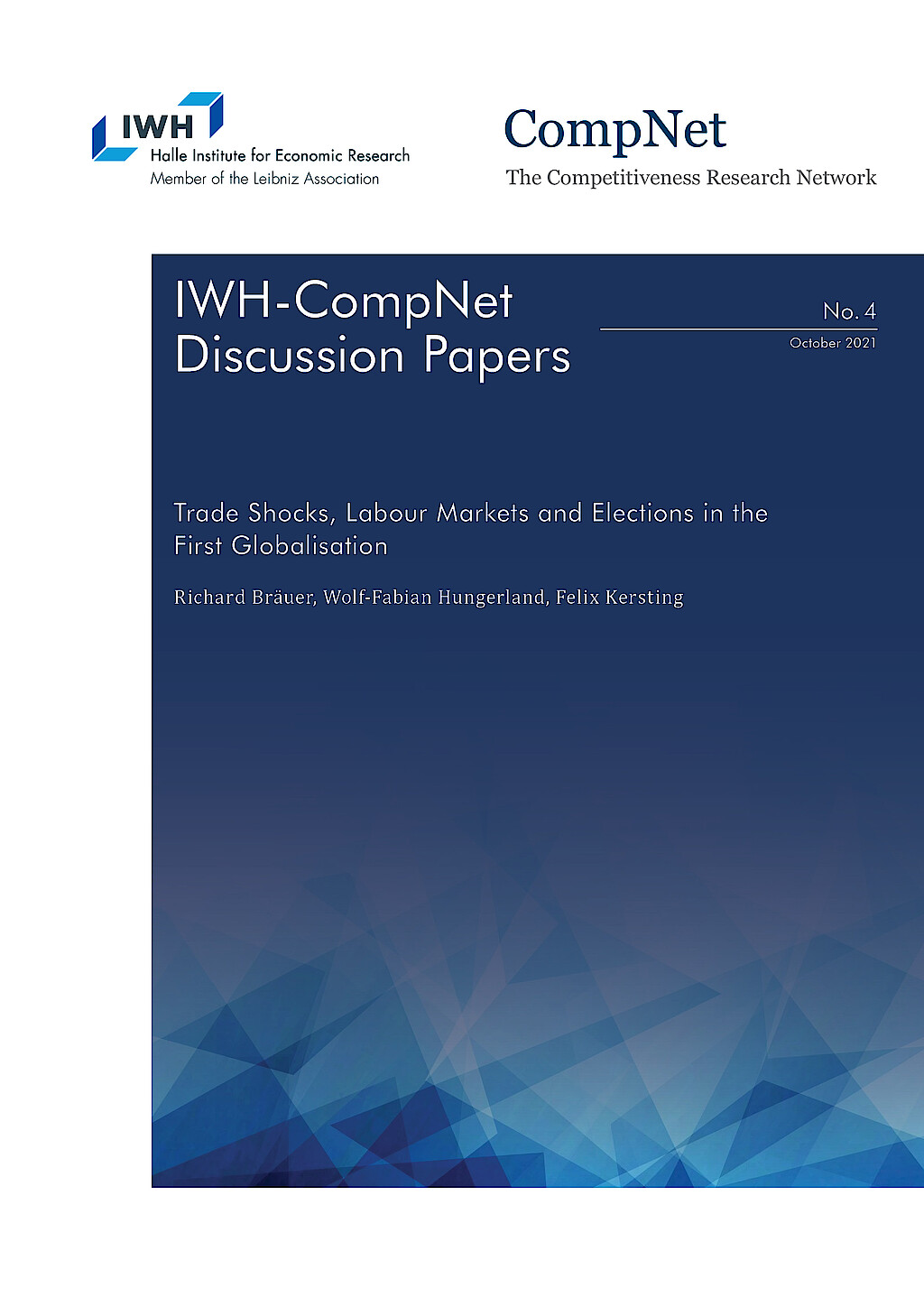
Trade Shocks, Labour Markets and Elections in the First Globalisation
This paper studies the economic and political effects of a large trade shock in agriculture – the grain invasion from the Americas – in Prussia during the first globalisation (1871-1913). We show that this shock accelerated the structural change in the Prussian economy through migration of workers to booming cities. In contrast to studies using today’s data, we do not observe declining per capita income and political polarisation in counties affected by foreign competition. Our results suggest that the negative and persistent effects of trade shocks we see today are not a universal feature of globalisation, but depend on labour mobility. For our analysis, we digitise data from Prussian industrial and agricultural censuses on the county level and combine it with national trade data at the product level. We exploit the cross-regional variation in cultivated crops within Prussia and instrument with Italian trade data to isolate exogenous variation.





